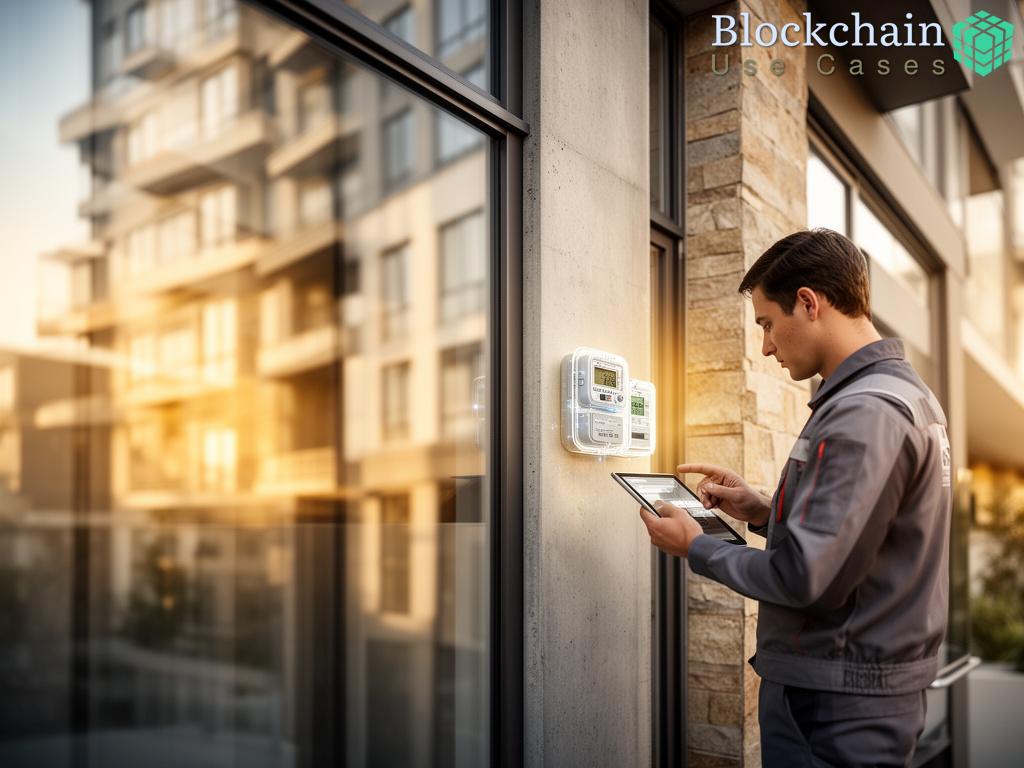Understanding Smart Contracts in Real Estate
In recent years, the emergence of blockchain technology has transformed various industries, and real estate is no exception. Smart contracts, a key innovation within the blockchain framework, are poised to revolutionize how property management fees are structured and executed. This article delves into the intricate details of smart contracts and their application in real estate, highlighting their potential to streamline processes, enhance transparency, and reduce costs.
Decoding Smart Contracts: The Mechanics Behind the Magic
At their core, smart contracts are self-executing contracts with the terms of the agreement directly written into code. They operate on decentralized blockchain networks, which ensures that once a contract is created, it cannot be altered without consensus among the parties involved. This feature significantly mitigates the risks associated with traditional contracts, such as fraud and misinterpretation.
Understanding the mechanics of smart contracts is essential for stakeholders in the real estate industry. These contracts can automate various functions, including the collection of property management fees, maintenance requests, and lease agreements. By leveraging smart contracts, property managers can ensure timely payments, maintain accurate records, and reduce administrative overhead.
Advantages of Implementing Smart Contracts in Real Estate
The integration of smart contracts into real estate property management offers numerous advantages that can enhance operational efficiency and client satisfaction. Below is a list of key benefits:
- Enhanced Transparency: All parties involved in a transaction can view the terms and conditions of the contract, ensuring clarity and trust.
- Cost Reduction: By automating processes, smart contracts minimize the need for intermediaries, thereby reducing associated costs.
- Timeliness and Efficiency: Automated execution of contracts ensures that transactions are completed promptly without delays.
- Increased Security: The decentralized nature of blockchain provides enhanced security against hacking and fraud.
- Accurate Record Keeping: Smart contracts maintain immutable records of transactions, simplifying audits and compliance.
Real-World Applications: Case Studies of Success
Several real estate companies have already begun to harness the power of smart contracts, demonstrating their efficacy in managing property transactions and fees. For instance, a leading property management firm implemented smart contracts to automate rent collection. This resulted in a 30% reduction in late payments and improved tenant satisfaction.
Another notable example is a blockchain-based platform that allows landlords and tenants to enter into lease agreements using smart contracts. This platform not only streamlines the rental process but also ensures that all parties adhere to the agreed-upon terms without the need for extensive legal intervention.
As the adoption of smart contracts continues to grow within the real estate sector, it is clear that these digital agreements will play a pivotal role in shaping the future of property management. With their ability to enhance efficiency, transparency, and security, smart contracts are set to become an indispensable tool for real estate professionals.
Benefits of Smart Contracts for Property Management Fees
The introduction of smart contracts into property management has redefined the landscape of fee structures, providing stakeholders with innovative solutions that facilitate seamless transactions. These digital agreements offer a host of benefits that extend beyond mere automation, fundamentally enhancing the operational framework of property management.
Streamlined Transactions and Fee Collection
One of the most significant advantages of smart contracts is their ability to automate the entire fee collection process. By eliminating manual intervention, property managers can ensure that fees are collected on time and with minimal effort. This automation not only improves cash flow but also reduces the likelihood of human error.
Enhanced Accountability and Trust
Smart contracts operate on a decentralized network, providing a transparent platform where all transactions are recorded and verifiable. This transparency fosters accountability among all parties involved in the real estate transaction. Tenants can view the exact terms of their agreements, while property managers can track payment histories effortlessly. This mutual visibility helps to build trust, which is essential for long-term tenant-landlord relationships.
Cost Efficiency and Reduced Administrative Burden
Implementing smart contracts can lead to significant cost savings for property management companies. By reducing reliance on third-party service providers, such as accountants and legal advisors, property managers can cut operational costs. Furthermore, smart contracts minimize administrative burdens associated with traditional fee collection processes, allowing property managers to redirect their focus towards enhancing tenant experiences and improving property upkeep.
Below is a summarized list of the primary benefits of integrating smart contracts into property management fee structures:
- Automation: Streamlined fee collection and reduced manual processes.
- Transparency: Clear visibility of contract terms promotes trust.
- Accountability: All transactions are recorded and verifiable on the blockchain.
- Cost Savings: Decreased reliance on intermediaries leads to lower operational costs.
- Efficiency: Quick resolution of payment issues and reduced human errors.
Implementation Challenges of Smart Contracts in Real Estate
Overcoming Technological Hurdles
As the adoption of smart contracts in real estate property management gains momentum, stakeholders must grapple with various technological challenges that can impede successful implementation. One of the primary hurdles is the integration of blockchain technology with existing property management systems. Many real estate firms rely on legacy systems that are not designed to work seamlessly with blockchain. This creates a significant barrier, as property managers must either adapt their current infrastructure or invest in new solutions that support smart contract functionalities.
Moreover, the learning curve associated with blockchain technology can be steep. Real estate professionals, accustomed to conventional practices, may find it difficult to understand and implement smart contracts effectively. Training and education are crucial in this regard, as they empower teams to leverage the full potential of smart contracts while addressing any apprehensions regarding operational shifts.
Regulatory and Legal Considerations
The regulatory landscape surrounding smart contracts remains murky, presenting another challenge for real estate stakeholders. As governments and regulatory bodies strive to keep pace with rapid technological advancements, the absence of clear guidelines can result in uncertainty. Property managers must navigate a complex web of local, state, and federal regulations that govern real estate transactions.
Additionally, the legal enforceability of smart contracts is still a topic of debate. While the immutable nature of blockchain provides security, it does not automatically confer legal recognition to smart contracts in all jurisdictions. This inconsistency raises concerns about potential disputes and the enforceability of agreements, necessitating a thorough understanding of legal frameworks before deploying smart contracts in property management.
Addressing Stakeholder Resistance
Another significant challenge lies in overcoming resistance from stakeholders who may be skeptical of adopting smart contracts. Traditional real estate practices have been entrenched for decades, and change can be met with apprehension. Building a compelling case for the advantages of smart contracts—such as enhanced transparency, cost savings, and improved efficiency—requires a strategic approach.
Engaging stakeholders through demonstrations, pilot programs, and case studies can help dispel fears and highlight the tangible benefits of smart contracts. Furthermore, addressing concerns about data privacy and security is essential to assuage fears that can hinder acceptance. By fostering open communication and showcasing successful implementations, the path toward broader adoption of smart contracts in real estate can be paved.
Comparative Analysis: Traditional vs. Smart Contract Fee Structures
Shifting Paradigms in Fee Structures
As the real estate industry increasingly embraces technological advancements, a critical examination of fee structures reveals a notable divergence between traditional methods and the innovative framework offered by smart contracts. This comparative analysis not only highlights the operational intricacies of each approach but also underscores the potential for smart contracts to redefine the financial dynamics of property management.
Efficiency and Accuracy in Fee Collection
In traditional property management, fee collection often involves cumbersome manual processes that can lead to significant delays and inaccuracies. This system typically requires property managers to send invoices, track payments, and follow up on arrears, resulting in a labor-intensive approach that can frustrate both managers and tenants alike. In contrast, smart contracts automate the entire fee collection process, seamlessly executing transactions based on predetermined conditions. This automation not only enhances efficiency but also ensures that payments are processed without the risk of human error, allowing property managers to focus on more strategic tasks.
Transparency and Trust: A Key Differentiator
One of the most profound differences between traditional fee structures and those enabled by smart contracts is the level of transparency they provide. In conventional arrangements, the terms of agreements can often be obscured, leading to misunderstandings and disputes among stakeholders. Conversely, smart contracts operate on a decentralized blockchain, where all parties have access to the same information regarding fees, payment history, and contractual obligations. This inherent transparency fosters a greater sense of trust between landlords and tenants, as everyone is privy to the same data, thereby minimizing the potential for conflicts.
Cost Implications and Long-Term Sustainability
Examining the cost implications of traditional versus smart contract fee structures reveals significant differences. Traditional methods often require a range of third-party services, such as legal advisors and accountants, which can cumulatively inflate operational costs. Smart contracts, by eliminating the need for intermediaries, present a cost-effective solution that not only reduces expenses but also streamlines operations. Over time, the adoption of smart contracts is likely to result in substantial long-term savings for property management firms, making them a more sustainable choice in an ever-evolving market.
Conclusion: A Future-Oriented Approach
In summary, the comparative analysis of traditional and smart contract fee structures elucidates the transformative potential of blockchain technology in real estate. While traditional practices are characterized by inefficiencies and opacity, the adoption of smart contracts promises enhanced efficiency, transparency, and cost savings. As property management continues to evolve, embracing smart contracts may very well become a defining feature of successful, future-oriented businesses in the real estate sector.
Future Trends of Smart Contracts in Real Estate Management
The real estate landscape is evolving rapidly, and smart contracts are at the forefront of this transformation. As technology continues to advance, the integration of smart contracts into property management fee structures promises to unlock unprecedented efficiencies and capabilities. This section explores the anticipated trends that will shape the future of smart contracts in real estate management, highlighting their potential to revolutionize traditional practices.
Transformative Innovations on the Horizon
Looking ahead, the realm of smart contracts is set to experience transformative innovations that will enhance their functionality and accessibility. One notable trend is the increased interoperability between various blockchain platforms, which will enable seamless integration of smart contracts across different property management systems. This will facilitate broader adoption among real estate professionals, reducing the barriers to entry for those who may have been hesitant to embrace this technology.
Moreover, as the demand for customized solutions grows, developers are likely to focus on creating user-friendly interfaces that simplify the process of drafting and executing smart contracts. Property managers will benefit from intuitive platforms that allow them to tailor contracts to their specific needs, thereby ensuring that all parties involved can easily understand and comply with the terms of their agreements.
Legal Evolution and Regulatory Frameworks
As smart contracts gain traction in real estate management, the legal landscape will also need to adapt. One of the key future trends will be the establishment of comprehensive regulatory frameworks that govern the use of smart contracts in property transactions. Governments and regulatory bodies are beginning to recognize the importance of creating clear guidelines to ensure that smart contracts are legally enforceable and compliant with existing laws.
The evolution of legislation surrounding smart contracts will provide property managers with the confidence to implement these digital agreements without fear of legal repercussions. This shift will not only enhance the legitimacy of smart contracts but will also pave the way for their integration into mainstream real estate practices, ultimately fostering greater trust among stakeholders.
Data-Driven Decision Making
Another emerging trend is the integration of data analytics with smart contracts in real estate management. As smart contracts generate extensive data related to transactions, property managers can leverage this information to inform their decision-making processes. By analyzing trends in tenant behavior, payment histories, and market dynamics, property managers can optimize their operations and enhance tenant satisfaction.
Furthermore, the utilization of advanced analytics will enable property managers to forecast future trends more accurately and adjust their strategies accordingly. This data-driven approach will not only streamline operations but also create a more responsive and adaptive property management environment, ultimately leading to improved financial performance.
In conclusion, the future of smart contracts in real estate management is poised for remarkable growth and transformation. By embracing innovations in interoperability, evolving legal frameworks, and leveraging data analytics, stakeholders can unlock the full potential of smart contracts. As the industry continues to adapt to these changes, smart contracts will undoubtedly become an integral component of property management fee structures, driving efficiency, transparency, and trust in real estate transactions.





